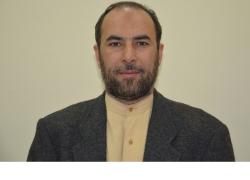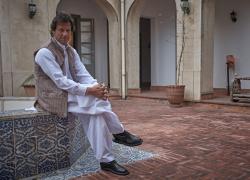An interesting account of the most common interview mistakes and how to avoid them
Knowing what to say and how to behave in an interview is critically important. The candidates should present themselves in a more composed manner in order to be selected. They should have to make a positive first impression and convince the interviewers that they would be a good fit for the job. However, a number of candidates make some major mistakes that cost them a chance at getting hired. I personally experienced, many candidates, have a fair chance to be selected but they make some grave mistakes which result in utter failure. In this article, I share some of the most common interview mistakes the candidates usually commit with useful suggestions, how to avoid them.
Be honest
As noted in my previous article, “How to prepare mentally and emotionally for the job interview?”, dring a recent interview, in response to a question asked about his interests and hobbies, the candidate whose interview, otherwise, till that moment, was perfectly an easy ride, replied that he loves reading books. But when he was asked to name a book, he read recently, the candidate was dumbstruck with discomfiture. In fact, he was not straight in his response. This resulted in a disastrous end of one of the best interviews, I ever attended as a subject expert.
On the other hand, when I recall my personal experiences while appearing in various interviews in the capacity of a candidate, whenever I came across a situation, where I was asked a question, I did not know the answer, I plainly and honestly said ‘sorry’ rather than talking nonsense. This maintained the initial good impression I created and consequently, dropping a question or two did not affect the positive outcome, ultimately- I was hired.
Be natural
What I observed that if the candidate is presorting him/herself in an unnatural way, everybody seriously notices and this really creates a bad impression. In the first ever interview, I attended as a panellist, what I noticed, one candidate was so nervous but was pretending to be confident was slouching down on the chair with his arms crossed and his legs stretched straight touching the other side of the table. He was projecting his body language in such a casual and informal manner that abundantly reflected his nervousness. This only one point culminated in his rejection otherwise he would have a fair chance to be selected as the competition was not really tough that time.
Be a good listener
During the early days of my professional career, I had a horrible experience during an interview as a candidate. I did not pick up the very first question asked by the head of the panel and despite asking him to repeat the question, I jumped into answering it which is absolutely not the right way to start with, hence, ruining the whole tone of my interview.
Similarly, in one of a recent interview, a member of the panel asked a candidate, “what is your best quality”. The candidate started answering, “ well, I am energetic, hmm, …I am a self-starter, hmm,…I am a team player, I am a smart worker, I accept challenges blah blah blah”. The interviewer reminded that he had asked just about “one single quality” that discerned her from the rest of the potential candidates, but instead of allowing the interviewer to complete his question, the candidate started narrating a laundry list of his qualities. This obviously annoyed the panel.
Disclosing irrelevant skills
It is crucially important to deliberate upon the skills which need to be talked about and those, not to be disclosed in the interview. Candidates generally do not apply their mind to fix it. During a recent interview, for the position of an HR officer, I was attending in the capacity of the Head of the Department, one of the candidates who was an MBA in HR and was a professional and an acclaimed musician.
Ironically, he was more banking upon his musical skills, rather than his HR related expertise. The time, you ask him a question, he was having a natural tendency of dragging the reply to the world of music. Nobody on the panel was ready to buy his argument to that effect. Ultimately, he was not selected. I guess, had he focused on the core job specification, without revealing his passion for music, he might have performed fairly well and would have been in a better position to be hired.
Taking care of the appropriate dress code
It happened that the candidates who were elegantly dressed were not hired while candidates dressed very modestly were selected. One of my ex-boss divulged that being on the panel of the Public Service Commission interview for a senior position, he recommended a candidate but other members had serious observations about his untidy and shabby outfit. My boss in a light mood told the panel that had the candidate dressed up even in neat and tidy clothes, he was going to look not much different for his meek physique. The candidate was selected with a burst of loud laughter filling the room. But even then I will suggest the candidates for a job interview should be properly dressed with presentable outlook.


















